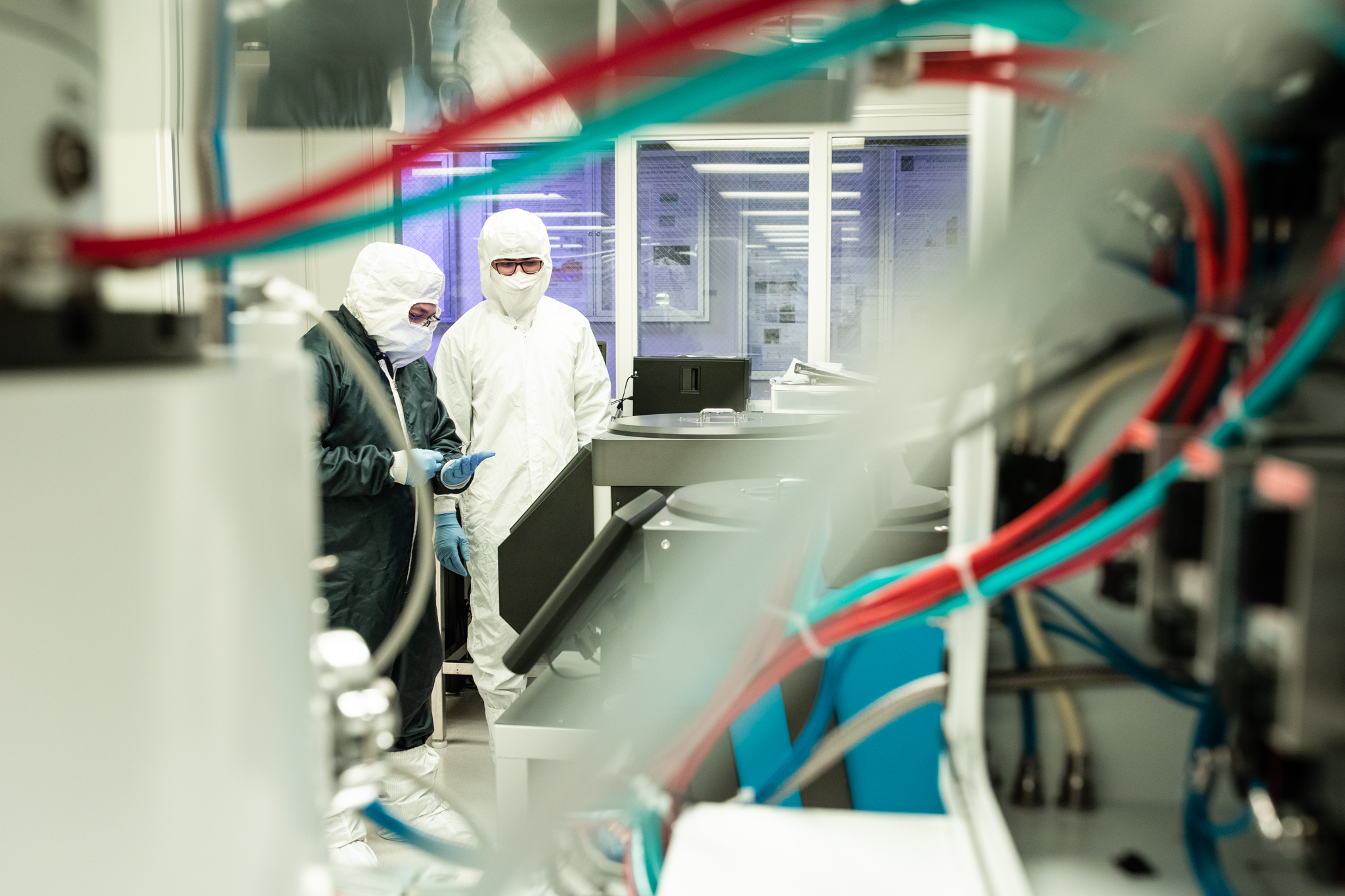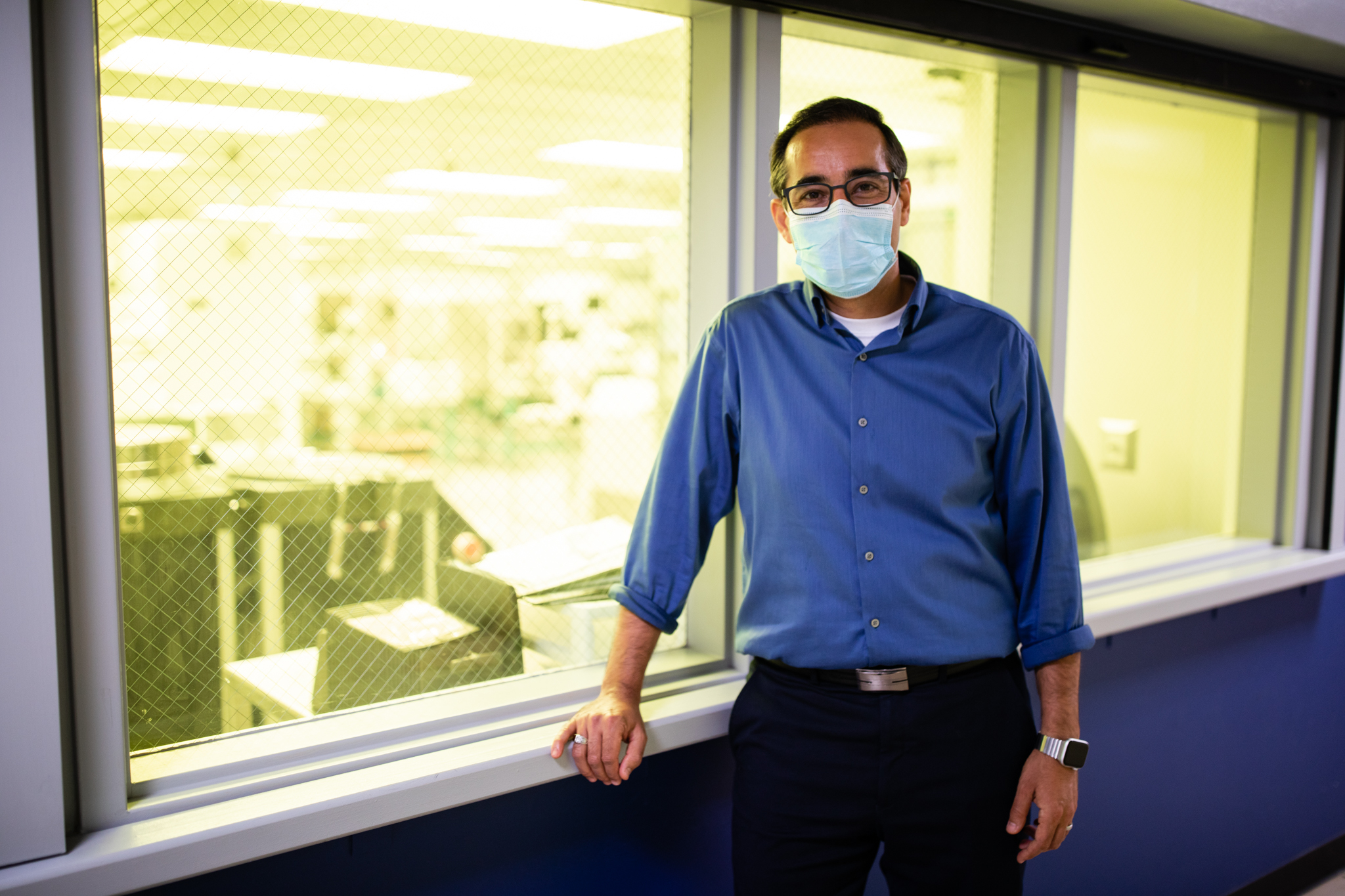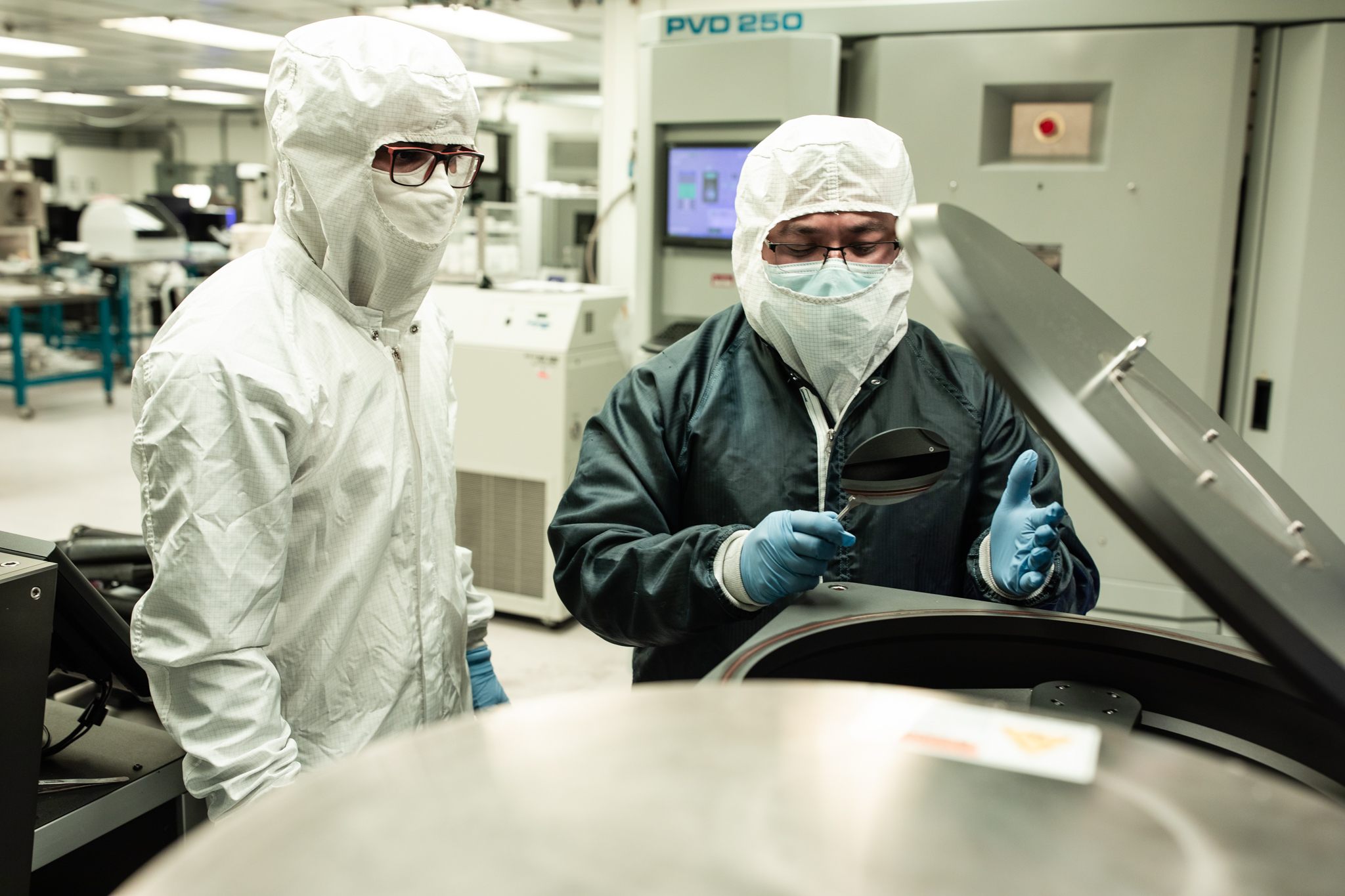A partnership benefits nanofabrication research at Virginia Tech and beyond
Located in Virginia Tech’s Micro and Nano Fabrication Laboratory, the equipment will help develop a shared research laboratory space between three colleges – Engineering, Agriculture and Life Sciences, and Science

Engaging with industry and developing comprehensive partnerships of shared value is critical to the success of university initiatives and growing the research enterprise.
As a culmination of efforts between LINK + LICENSE + LAUNCH, the College of Engineering, and a lead faculty member, SPTS Technologies, a KLA company, provided cutting-edge nanofabrication equipment through a combination of corporate sponsorship and commercial provisions that will provide Virginia Tech students and faculty the ability to conduct processes related to nanotechnology and nanoscience research.
Nanotechnology, the study and application of extremely small things that are used across chemistry, biology, physics, materials science, and engineering, can have significant social impacts on areas that include quantum computing, smart agriculture, environmental and biomedical sensors, and wearable electronics.
The state-of-the-art plasma etching and deposition tools from SPTS Technologies will allow students and faculty to perform advanced micro/nanofabrication research through transdisciplinary collaboration and to fulfill senior design projects.
Located in Virginia Tech’s Micro and Nano Fabrication Laboratory, the equipment will help develop a shared research laboratory space between three colleges – Engineering, Agriculture and Life Sciences, and Science.
Establishing shared research spaces and labs to house critical resources broadens access to them, alleviates the burden on any single research group, and enhances the ability of the research community as a whole to respond quickly to new opportunities. In research areas that are gathering momentum, like nanotechnology, shared facilities with state-of-the art resources can help make an already-active program even more competitive on the national stage.
“Obtaining new advanced wafer processing equipment for the lab filled a necessary void in the specific research area and helped achieve a goal for the university," said Masoud Agah, the Virginia Microelectronics Consortium Professor of Engineering in the Bradley Department of Electrical and Computer Engineering.

In 2019, the Office of the Vice President for Research and Innovation launched an inaugural class of Faculty Fellows cohort who were charged with taking on the University Shared Research Facilities initiative. The idea was to create centralized facilities outfitted with advanced wafer fabrication equipment that are broadly accessible to Virginia Tech faculty and external users. Agah, one of the three Faculty Fellows is charged with leading the micro- and nanofabrication area for the university initiative and to create a plan for Virginia Tech’s Comprehensive Nanofabrication Facility (CNF@VT), comprising a new cleanroom and several specialized shared labs.
“This suite of equipment updates and augments the capability of our existing cleanroom, supports education, and expands the potential of Virginia Tech’s research enterprise,” said Agah, who also directs the Microelectromechanical Systems Laboratory. “SPTS Technologies has enabled Virginia Tech to advance nanotechnology research. In addition, we are able to share access with external researchers in the Virginia Nanotechnology Networked Infrastructure, a Virginia Microelectronics Consortium sponsored initiative, who conduct research reliant on nanofabrication technology, but have no or limited access to nanofabrication facilities of their own.”
The unique partnership also sets an example for the envisioned CNF@VT, which will be a major hub to advance research, education, and commercialization in nanoscale science and engineering, according to Agah.
At an early stage of the process, LINK, an integral business unit in the Office of Research and Innovation, was instrumental in engaging all of the vested Virginia Tech stakeholders with SPTS Technologies to understand common goals and strategic needs to move Virginia Tech’s vision of shared facilities forward.
“Part of LINK + LICENSE + LAUNCH’s mission is to help our faculty connect to alumni and industry around advancing research and development,” said Brandy Salmon, associate vice president for innovation and partnerships at Virginia Tech. “Being able to partner with dedicated professionals like our alumnus Kevin Crofton, president of SPTS Technologies and senior vice president at KLA Corp., enables the ecosystem of research in higher education to connect to industry and have them both grow simultaneously.”





